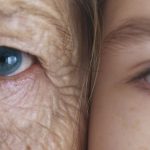
An increasing number of individuals in England and Wales are being discovered in a state of decomposition long after their demise, according to a recent study. This trend has been observed over the past 40 years and may have been exacerbated by the isolation associated with the coronavirus pandemic.
The study involved an analysis of data from the UK’s Office for National Statistics (ONS), examining death statistics recorded between 1979 and 2020.
While there is no official record of bodies remaining undiscovered for an extended period, the researchers utilized two International Classification of Diseases (ICD) codes – R98 for “unattended death” and R99 for “other ill-defined and unknown causes of mortality” – as proxies to estimate the occurrence.
Those codes are R98 for an “unattended death”, and R99 for “other ill-defined and unknown causes of mortality”.
The statistics indicate a consistent increase in such incidents, indicating a growing number of individuals passing away and undergoing decomposition before being discovered.
“While mortality from all other causes decreased from 1979 to 2020, the opposite was seen for deaths from R98 and R99 (or ‘undefined deaths’), with men more affected than women,” write the researchers in their published paper.
“There was a sharp rise in these deaths in both sexes but in men particularly in the 1990s and 2000s, coinciding with a time when overall mortality was rapidly improving.”
The research involved a collaboration between the University of Oxford, Imperial College London, Public Health Scotland, and the London School of Hygiene and Tropical Medicine in the UK.
The study highlights two instances, one in May 2021 and another in February 2022, where deaths went unnoticed for several years – in the former case, lasting for a total of three-and-a-half years.
According to the researchers, a “breakdown in formal and informal social support networks” could well be behind the trend, and the suggestion is that vulnerable people are “falling through the gaps” when it comes to being supported.
Earlier research has established a connection between an increased risk of premature death and social isolation and loneliness. Chronic or severe loneliness is a widespread issue globally, and the pandemic is likely to have exacerbated this situation.
The researchers are advocating for increased efforts to monitor this trend, proposing the introduction of a specific ONS code for bodies discovered in a decomposed state. This could serve as an initial step toward addressing this unsettling issue.
“The increase in people found dead from unknown causes suggests wider societal breakdowns of both formal and informal social support networks,” write the researchers. “They are concerning and warrant urgent further investigation.”
“We call on national and international authorities to consider measures that would make it possible to identify these deaths more easily in routine data.”
The research has been published in the Journal of the Royal Society of Medicine.





